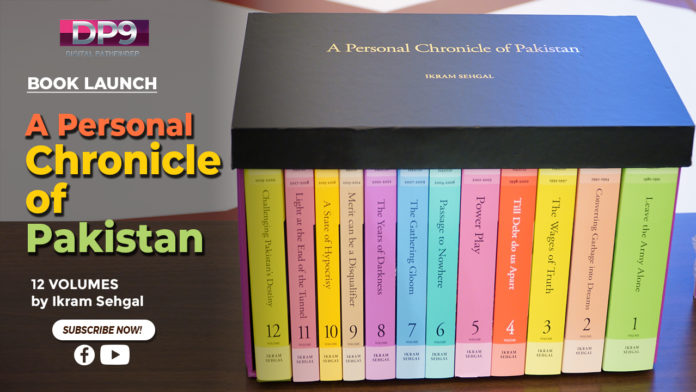The launch of Ikram Sehgal’s published work in 12 volumes under the title “A Personal Chronicle of Pakistan” was held at a local hotel in Karachi on Saturday July 17, 2021. These volumes contain the compilation of the writer’s articles published in different newspapers over the last 40 years. Ikram Sehgal, noted defence and security analyst is Chairman Pathfinder Group, Chairman Karachi Council of Foreign Affairs (KCFR) and the Vice Chairman Board of Management Quaid-e-Azam House Museum (a Nation Building Institution. The events was streamed live via Digital Pathfinder DP9 and the Nutshell Group, it was attended by people from different spheres of society, Diplomats, writers, intellectuals and others. Dignitaries participated via video link and included President World Economic Forum Borge Brende, Senior Group Advisor Meinhardt Group, Singapore Dr. Iftekhar Chowdhury, Journalist Owen Bennett-Jones, Deputy Head of Mission, Embassy of France HE Yves Manville, Director Global Security and Resilience Projects Dr. Marc H. Siegel, President American Foreign Policy Council Dr. Frederick Starr and Minister of Tolerance and Coexistence UAE, HH Sheikh Nahayan Bin Mubarak Al Nahayan. The event was moderated by Huma Baqai, Associate Professor of Social Sciences and Liberal Arts at Institute of Business Administration, Karachi.
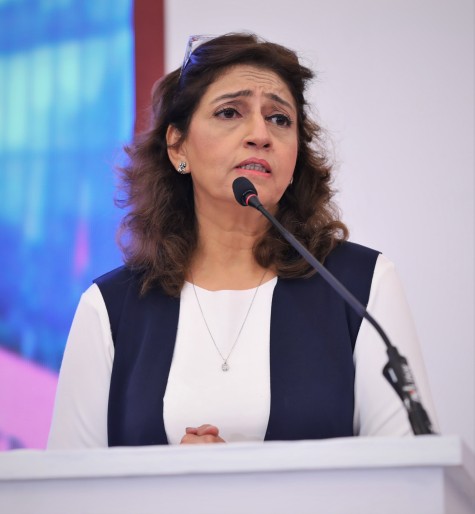
Huma Baqai: It was only last night that I received the package of 12 volumes which I was able to only glance through. I have been meeting many people, like today, where we were celebrating something that Ikram Sehgal had pulled off. Today I had walked over to Mr. Ikram Sehgal, having known him since a little less than 20 years and told him “I thought you were done with impressing me, there is nothing more that you can do to impress me further but you have pulled it off one more time.” These volumes cover the period 1980 to 2020, a period when Pakistan was on a roller coaster ride, geo-economically, geo-strategically and politically. When a country is going through such turbulent times and one is writing about it, it is very hard to have consistency of view and say things without having an agenda. And if you have the courage to put that in the public domain, the things that Ikram Sehgal has been doing for twenty years, it is an act of courage. What really impressed me was the way the volumes were compartmentalized and how these can be of immense use and value to people who want to actually think of an event, get hold of a volume (that is how they are compartmentalized) and get a deep insight into what really happened at that time which is without bias, without a political agenda or a personal one but it is just one thing i.e. it is pro-Pakistan thinking, at least what is what came across to me when I glanced through the volumes and I think in today’s day and time that is extremely commendable. Ikram Sehgal calls it “A personal chronicle of Pakistan’ but he is also a man who has done several things, understands Pakistan, has served Pakistan both in his capacity as a soldier and as a civilian, he is respected, is respected in society and I think when a person of his stature puts forward something for us, we must always take it seriously. So I think this is a huge intellectual contribution and should be on all shelves, in libraries, it definitely is in mine and I think it is a great treasure for students, historians, people who want to understand Pakistan and Pakistan’s perspective and that is such a huge need. There is almost a narrative vacuum exists about things that have happened in Pakistan or things that are talked about in Pakistan and there is never a Pakistani point of view out there even though we have television channels but unfortunately they borrow things from Reuters, etc. paint it nicely and put it out. So in this time of information overload having an objective view from a person who understands Pakistan and has deep insights into issues is an absolute treat. I urge all of you to read these volumes, which I hope are also available online, if not, I request Ikram Sehgal to ensure this. With that, ladies and gentlemen, I will ask you to at least put your hands together for this man. And now we will have some really wonderful people and hear what they have to say and the first is none other than His Highness Sheikh Nahayan Bin Mubarak Al Nahayan, the cabinet member and Minister of Tolerance and Coexistence of UAE. I don’t there could have been a better person making a comment. We will now play his comments.
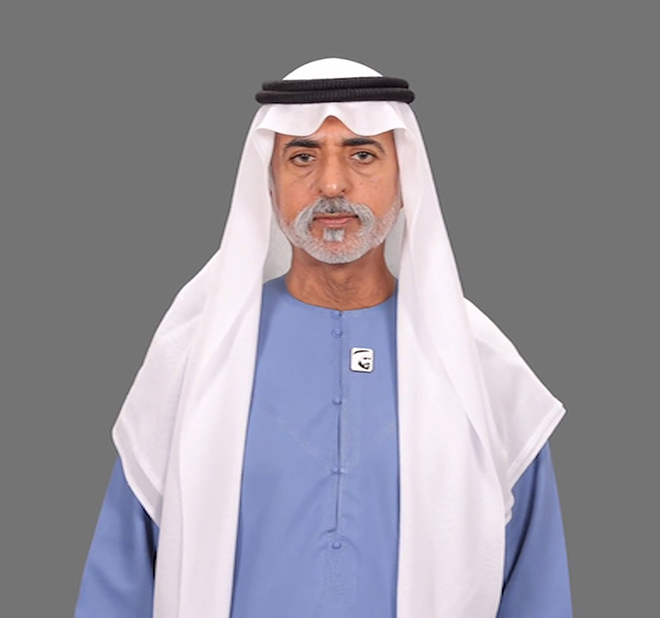
Al Nahayan
H.H. Sheikh Nahayan Bin Mubarak Al Nahayan: The very best way to celebrate the publication of Ikram Sehgal’s life story and of his contribution to public life for the past 40 years would be to read his remarkable book that is being launched today. The book clearly signifies what we all know about Ikram’s dedication, commitment, common sense and generosity of spirit, his contribution to public discourse and discussions of important national issues that are displayed in this book and are a reflection of his hard work, loyalty and commitment to Pakistan and its people. Ikram is a very close friend. As the various volumes show he is truly inspired by his deep love for his country, for his family, for his mentors and for his friends and colleagues. We naturally praise Ikram Sehgal for his great successes throughout his life, he has marshaled his education, his experience, his intellect and character to produce a work of the highest quality. We also appreciate Ikram’s understand of Pakistan’s national aspiration as it is clearly evident from the various articles in this book. He has witnessed the country’s successful quest to become a truly global force for progress, not only a center of finance, business, education, technology and culture but also a source of innovation and creativity that promises to benefit the whole world. Ikram, my dear brother, I know what commitment you have made to your beloved country over your lifetime, I am honoured to have this opportunity to pay tribute to you, you have my highest regards and sincerest gratitude for the excellent work you have done. In my opinion this book will inspire readers everywhere. On behalf of everyone assembled here today I thank you for this compilation of articles you have written over the last many decades that tell your story. I am confident this book will help to promote knowledge and pride in Pakistan and its great people. Congratulations on the publication of this interesting and valuable book.
Huma Baqai: Our next speaker is not of any less stature, Ross Perot Jr Chairman Perot Group of Companies, USA. From his profile the most interesting thing I found is that he is the first person to have flown around the world in a helicopter and he chooses to speak about Mr. Ikram Sehgal, that says a lot for itself, both from the same field, so ladies and gentlemen please lend us your ears for what he has to say.
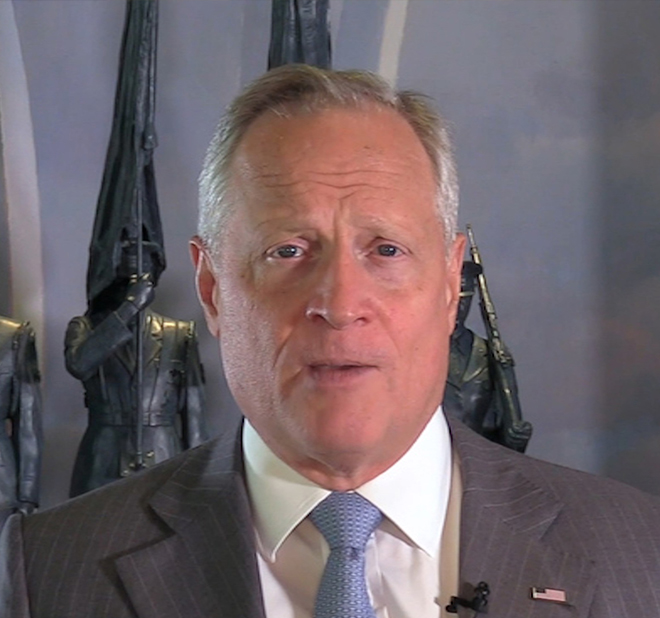
Ross Perot Jr: Ikram, thank you for inviting me to be here today, it is exciting to hear about your new book and have a book launch. I hope I could have been with you but I hope this video message will suffice. You should have a very good day and I know that your friends are going to enjoy the richness of your book and learning more about you and your great career. I hope somebody out there will also ask you some helicopter pilot stories, you can talk about your amazing flying career. I wish you the best and I look forward to seeing you and your family very soon. Thank you.
Huma Baqai: We are also very grateful for Ross Perot Jr for taking out the time to speak, this means a lot for us, means a lot for the volumes that are being launched today and means a lot for Pakistan. And now we have Sirajuddin Aziz Sahib who is going to comments on the book. Sirajuddin Aziz’s comments are all the more important because he is a columnist who writes regularly in newspapers. I also contribute to newspapers, etc. in my humble way and it is interesting, when our articles are printed to see how we see it, how others see it and sometimes we tear each other apart (laughing). So, over to you, Mr. Sirajuddin Aziz.
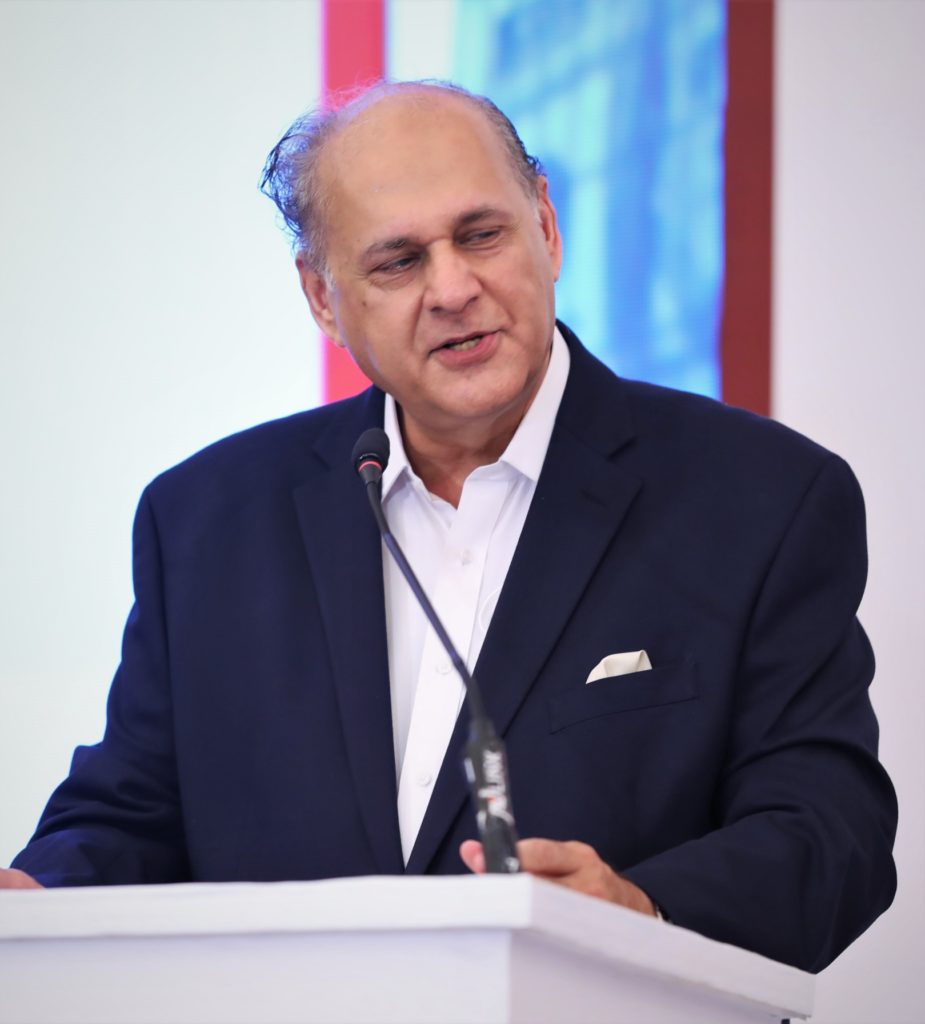
Sirajuddin Aziz: Thank you very much for those kind words Dr. Baqai. First and foremost General Sahib, Dr. Javed Jabbar and the author what an awesome compilation I got last night, this particular beautifully coloured package. I was impressed with the colour scheme first and foremost and when I looked at the books and the combination of the books in terms of their titling, they have some amazing titles. I don’t know how Mr. Ikram Sehgal does this but I read his articles every week in the various newspaper he contributes to but finding it in the form of this amazing twelve volumes is really wonderful. I think all of you should be equally proud of the fact that these are printed in Pakistan, I was really amazed at the quality of printing and most importantly, something that is lacking most of the time in our country is the binding which is of international standards. And I was so proud of the fact as a Pakistani that it has been done by a Pakistani Publishing House in Lahore.
A little about his prolific aspect of his writing. I may also mention here that Dr. Baqai did say that I contribute but that is very mundane work, there is nothing really profound about what I write back when I was about 15 years old in conversation with my father, he said to me if I want to know more about the nation of Pakistan, go and take my book from my library which was titled ‘From Curzon to Nehru’ which was written by Durga Das who was then the Chief Editor of the Hindustan Times and later on The Times of India. When I was reading the Foreword it was very inspirational for me, he wrote in that as a journalist he was very proud and as a matter of claim to fame, he said that “I have till now a million words published! That stayed in the back of my mind that it was something that I must target for and here I am trying very hard to get anywhere near a thousand articles and here you have got 2000 articles from Mr. Ikram Sehgal covering 2.5 million words and more. So it is amazing at the list of subjects he can write about, internal security, external security, foreign policy, economic policy, social issues, ethical issues, moral issues, banking the good, the bad and ugly of it, State Bank autonomy what it should be, shouldn’t be, what else? What is the one subject you haven’t written about, Ikram Sahib? Possibly he needs to write about Lollywood, about Hollywood, because those are the only subjects I am missing in the book. And the titles that he chooses for his articles are again very amazing, “Teen Sukhi Roti” for an article in English, there is also an article on Foreign Policy and is titled “Hunuz Delhi Door-ast”, I hope I got that correct. Then there is the ‘Mango’ series, I mean if you can have apples, why not mangoes? We can have a kinoo republic elsewhere so we have a mango republic. Such an interesting piece on mango republic, then the series of articles on Mango. Then there were other titles that I like most, such as Tea with Sympathy.
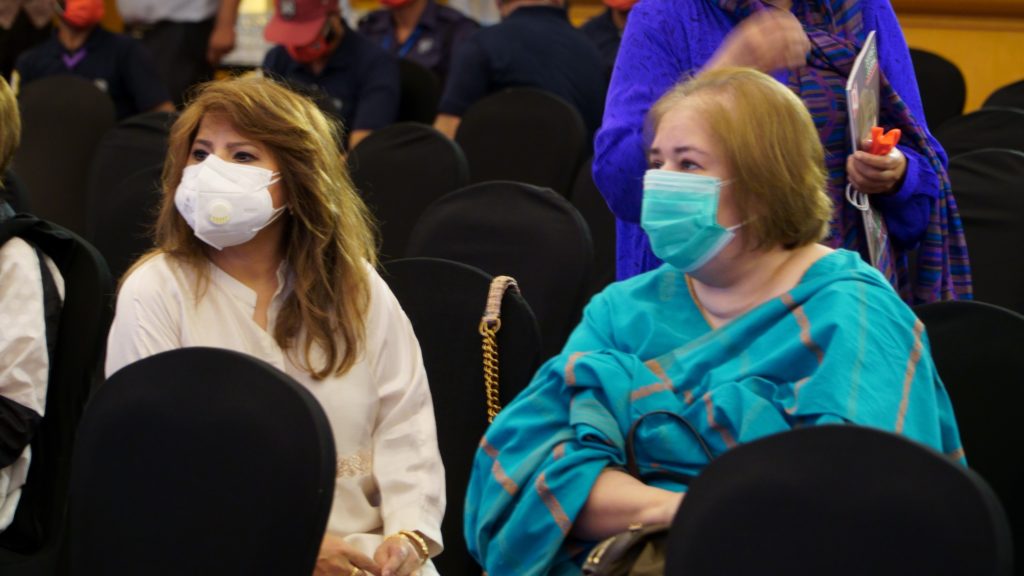
A little about my personal relation with Ikram which I believe is important to recount. I have know Ikram Sahib for 16-17 years, first at Bank Al Falah, we worked together he being part of the Board while I was part of the Management. As luck would have it I happened to be heading the bank at one point in time when the worst nightmare for a bank happened to me, which was a run on the bank based purely on rumour, there was no truth about the reason for the run. At that point in time, he stood like a rock, a Gibraltar rock for the entire institution and between the two of us, we held about 17-18 press conferences in about 3 days time going live. What a nightmare that was! That is where the relationship developed further and he has been very kind in guiding me in my own writings, he is a good critique and mentions things that I need to improve upon. It is so kind of him and I have looked up to him as an elder brother who has always guided me, in both the professional and personal front.
The book, as Dr. Baqai said, is covering a period of 40 years of Pakistan’s history but it also includes a lot about Pakistan’s Foreign Relations which is the most important aspect of today’s diplomacy and he has been writing about that since the 80s. I think nobody at the Foreign Office had the time to read that so I suggest that several volumes of these volumes are kept at the library of the Foreign Office and the Parliament House, there is one, and if anybody ever visits that place then these are the books to read and improve upon the foreign policy. He has written so much about developing political harmony, economic harmony, economy force fight, relations with China, CPEC, etc. I mean there is so much to read, so much variety and the best part is that one can read about a subject in 1200 words or a maximum of 1500 words and then move on to a new subject. The book is a magnum opus I would think, it is a great effort for historians to read, for researchers to take research from it, and to be able to write something of their own. I wish Ikram Sehgal the best of luck and continue writing and do change the subject a little bit more towards, you know, as I recommended Hollywood. Thank you very much ladies and gentlemen.
Dr. Huma Baqai: Sehgal Sahib, it is never too late to take up Hollywood, it is interesting, isn’t it? I only started reading Sehgal Sahib’s article since the last two years, I think I should have done it earlier but I think these books give me a chance to do so. Our next speaker is fantastically picked up because he is an authority on Central Asia and our government has just woken up to the potentials of Central Asia with the collaboration we are now having with Uzbekistan, we are giving them land, I heard on the news that Uzbek Airlines is going to start off and we are all set to tap the potential. It is now wonderful to hear from Dr. Frederick Starr Chairman Central Asia -Caucasus Institute and Silk Road Studies Program and President American Foreign Policy Council, Washington now that endorsement should be of value. Ladies and gentlemen, Dr. Frederick Starr.
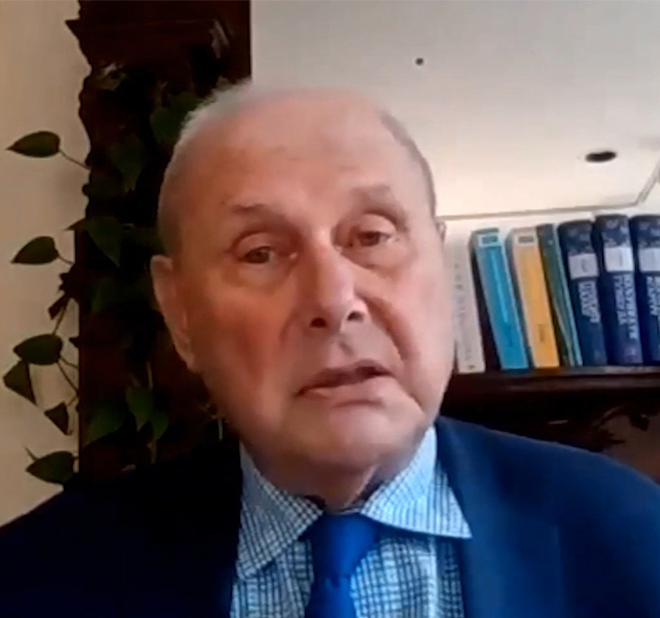
Dr. Frederick Starr: Every country needs authentic voices, not just the voices of officials but the voices of men and women who are deeply informed, judicious and above all, independent. In other words a country needs not just the voice of officials but that of its citizens. For Pakistan Ikram Sehgal is such a person. Pilot, military officer, war hero and successful business he brings to his writings an extraordinary breadth of experience, he is also a most engaging writer, I know from long experience and if I begin a Sehgal essay I will read it to the end and most likely share it with many, I am sure all of you do the same. It’s not important really that Mr. Sehgal’s readers agree with all his conclusions, indeed sometimes he me scratching my head or even disagreeing with me outright. That’s just as it should be for Sehgal is no dogmatist, it is not by accident that I read him but for his careful presentation of often neglected data and for his ability to respectfully consider other interpretations besides his own. In short he is not a polemicist but a true educator who deserves to be recognised as such. Today we are celebrating the publication of 12, just think of its, 12 volumes of Ikram Sehgal’s collected essays. This should have happened long ago. Thinking back I feel silly having encouraged him years ago for publishing more abroad without appreciating the sheer quantity, range quality of his existing writings in Pakistan. I am honoured to join you in this celebration, I do so with deep respect for the author who is deeply acknowledged for his insights on the depth of his knowledge on Pakistan, its neighbours and the broader region and our infinitely complex global world today. I thank Mr. Sehgal for all he has done and will await Volume 13 with keen anticipation. Thank you.
Huma Baqai: Now we have another endorsement from a man who is also a very good friend and I also know that he is a man of principles and will not say things because he is Ikram’s friend but will say things what he feels is right. We will now have with comments of Dr. Marc H. Siegel, he is President and CEO Marc Siegel Associates LLC and Director Global Security and Resilience Projects. Mr. Marc Siegel.
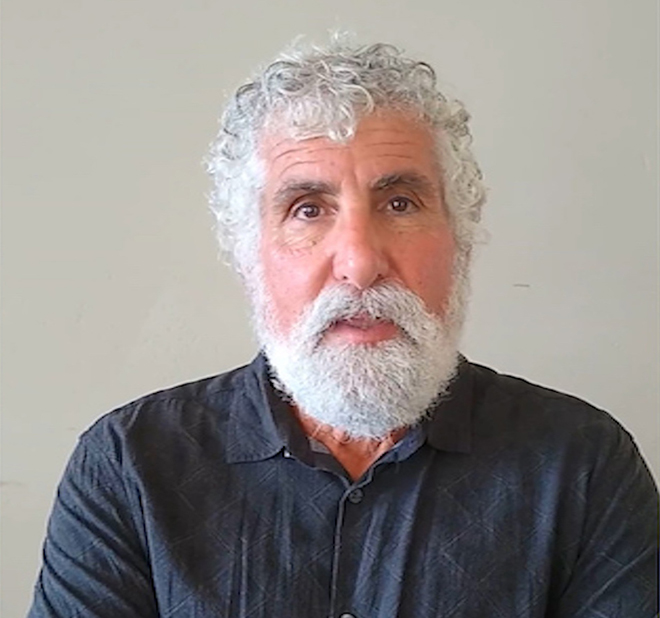
Dr. Marc Siegel: I would like to congratulate Ikram Sehgal on the publication of his 12 volumes of a personal chronicle of Pakistan. I really regret that I am not able to attend in person but I still feel I am with you today. As someone who has read a lot of the articles when they were first published I find it a fascinating chronicle of the history of Pakistan, the surrounding areas and world politics over a 40 year span from someone from somebody who is both a participant of events and also impacted events. What’s really about this volume is that Pakistan is not very well understood on the outside, most of the information people receive is from people who are expats or have an axe to grind with Pakistan. The beauty of the chronicles is that it is written from the perspective of somebody who truly loves Pakistan has a future and has a great potential. However Ikram does not always write a book that is glowing and always complimentary, he is very critical regardless of who has been in power, who are the political parties, he gives a fair and honest assessment of Pakistan and of the neighbouring countries as well as the geo-political politics that take place in the region and in the world in general. I would highly recommend this book to everybody, also on a personal note I would like to say a little bit about the man since understand the man is understanding the book itself. Ikram is somebody who I would consider a very righteous man, a family man, he is somebody who lives his family values and implements his family values in running his business as a large family where he takes care of people who work for him. I myself got to know Ikram and we joking refer to each other as “I am his Jewish cousin and he is my Muslim cousin”. We have had some wonderful times together with our families, my wife and I look forward to getting together every year with Ikram’s extended family and talking about just any subject that comes to our minds. So again, taking this back to the book, this will be a fascinating journey for you, taking you through the mind’s journey of Ikram Sehgal as he explains the political realities and the potential of the future of Pakistan over a 40 year period. So thank you and best wishes to Ikram.
Huma Baqai: Dr. Siegel, we also miss you here and miss your wife. Ab bohot maza aye ga q k ab aa rahe hain Javed Jabbar sahib jo kisi taruf ke mohtaj nahi hain. He is an intellectual. Javed Jabbar Sahib
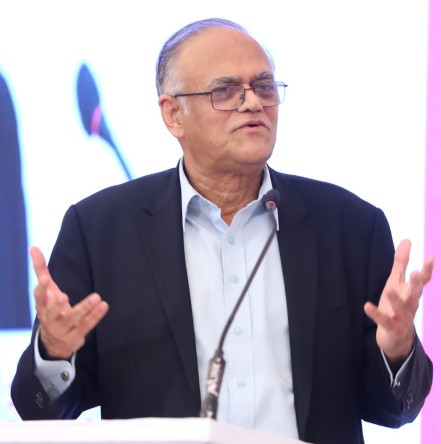
Javed Jabbar: Bismillah Ar Rahman Ar Rahim. Thank you Sehgal Sahib. It is an honour and a privilege to be with Mr. Sirajuddin Aziz, Lt Gen Humayun Aziz, Dr. Huma Baqai and yourself and (looking at the audience) these very mysterious faced masked, some unmasked, unmasked in more senses than one, very good people, Masha Allah veterans of the Armed Forces, the civil sector all of them representing different segments of our national life and society. Gathered here in this very well arranged event at a time like this when we have been so segmented and isolated, at a time when live gatherings are somewhat discouraged literally and correctly by the government of Sindh. It is an act of courage but also a tribute to the person who has taken the initiative of writing a formidable set of 12 volumes, an unprecedented accomplishment and also a tribute to all gathered here for taking the trouble to come here, so thank you for being here on behalf of the author. My compliments to Ikram Sehgal are reinforced by the fact that this remarkable collection is perhaps an unprecedented expression of simultaneity and consecutivity. I do not want to make too complex a word but it occurred to me that sometimes that consecutivity is the right structure to follow, you know you write something in 1980, write something in 82, 83, 84, that is consecutivity and in 1985 you compile an anthology of what you have written over the past five years. I mean struggling writers like myself have done it and I have done some anthologies and you to it because you want to see how you have looked at the world over five years and you want others to look at it. But in this case it is not just consecutivity at one and the same time to the best of my knowledge there is no previous example of any writer, and I say this ungrudgingly because I also have pretensions to be a writer, no other writer has managed to produce simultaneously as many as 12 volumes together at one and the same time. Fantastic. Remarkable. This is like bowling out 10 batsmen, its very easy to bowl out 10 Pakistani batsmen these days in case you are playing a one day match in England but fortunately they have retrieved their honour with their T20, but it is like bowling out 10 characters in just two overs or what have you. So this is a phenomenal achievement and Sirajuddin Aziz Sahib has so aptly commented on the quality of the book, you know you can write well but then the printer or the publisher may not do justice to it. Writing needs to be respected, words are precious. When you write something you are commiting yourself, of course you are commiting yourself on video tape also, you are being recorded and people can always throw it back to you what you said five years ago are not saying it today. So who cares. If objective conditions change you are entitled to change your views. But when you sit down to write, it is a much greater commitment than in speech alone. So when you commit something to paper and then the printer and the publisher and whoever else has been commissioned to do it gives it the kind of detailed attention and quality is a rare combination of content and forms, of aesthetics and content and that comes through not only in the quality of the paper and the printing, the choice of colour and the choice of the titles, the choice of the designs on each book. I mean look at the titles he has chose, are very interesting. First of all the institutions I love is “Leave the Army Alone”, I will have something to say something about this later. Then there is “Converting Garbage into Dreams” (Wah, wah, wah), 1992 to 1994, The Wages of Truth 1995 to 1997, 4) Till Debt do us Apart, 5) Power Play, 6) Passage to Nowhere, 7) The Gathering Gloom, 8) The Years of Darkness, 9) Merit can be a Disqualifier, 10) A State of Hypocrisy, 11) Light at the end of Tunnel (Oh my God, that will gladden the hearts of PTI because it covers the year 2017-18, we should have had a Minister from PTI as Chief Guest and then Challenging Pakistan’s Destiny, 2019 and 2020. Twelve volumes, in my humble suggestion there should have been a 13th volume on its own called the Index because there are so many interesting and important names and dates and events in these 12 volumes, unless I have missed it when I started reading the first volume. I received the volumes well in advance, I received it last evening so I had plenty of time memorizing all 12 volumes, you can ask me about page 706 on volume 7 and I can tell you line six but that is why an Index is badly needed and Insha Allah I am sure it is in the preparatory stage. But it will incalculably help students as well as readers of the book to quickly reach points they want to look up.
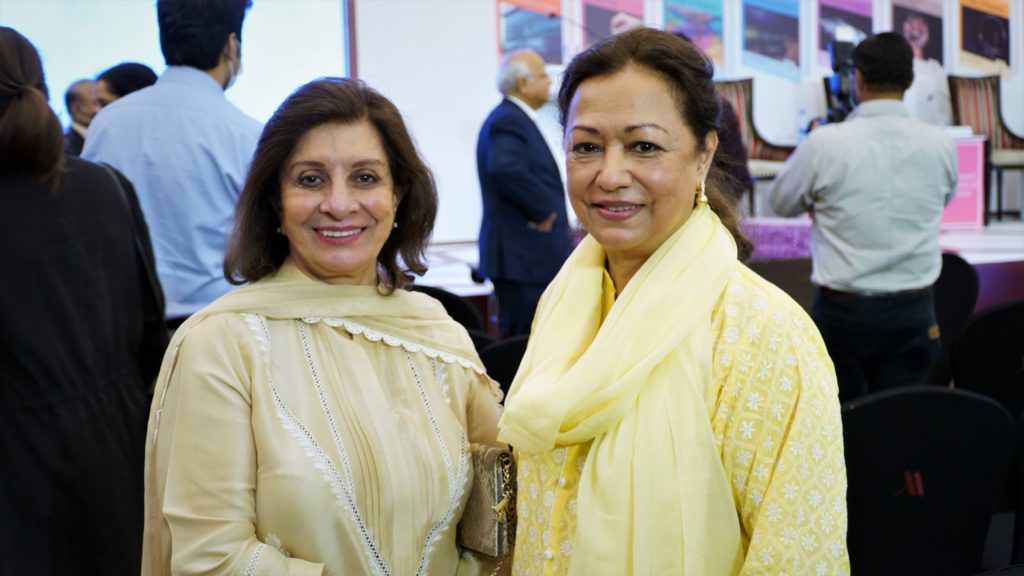
I am struck by the individuality and the thoughtfulness that he has applied to each subject, its not just a repetition of the conventional statements. It also proves that when you give a title as provocative as the one he has used for the first volume, Leave the Army Alone, you are not asking for trouble, you are asking for response. I cannot resist it but what Oscar Wilde said about temptation i.e. “the best way to deal with temptation is to give into it” so I am going to give into the temptation. Leave the Army Alone? My God. I mean, the cynical response and I am not a cynic as I admire the Pakistan Army, would be, has the Army left the civil/political alone? Has it? It is a valid question. But of course the answer to that would be that after all it was the civil/political sphere that invited the Army to come into the political sphere. And this was not in 1958 but 4 years before that as why did a civil/political cabinet led by the Muhammad Ali Bogra asked the serving commander-in-chief of the Pakistan Army to become Minister of Defence. That was a terrible mistake to ask a serving army officer to take a civil policy responsibility laid the seeds of what eventually happened in 1958. This should not have happened but I think an acknowledgement should be made that it was the civil/political sphere which failed to assert its leadership and instead looked to the Armed Forces for the kind of stability and strength which it itself was not able.
I am struck by another aspect. We tend to assume that the Army is a very fixed static institution and all it is interested in is setting up DHAs, enterprises, becoming very powerful and influencing politics overtly or covertly. That is true partly but partly that is not true. The Army evolves, it is not static, this Army in 2021 is not the Army that was in 1954 or 1958 or 1977, it is changing in many ways for the better and when I think of the period 1977 to 1988 I often come across writings, you know, the terrible dark years of Gen Zia ul Haq that they have forever changed Pakistan and forever changed the Pakistan Army. I beg to disagree. There are some negative elements which have been left behind by Gen Zia’s terrible phase. However isn’t it interesting that of the eight army chiefs who came after Gen Zia not a single one has attempted to walk in his footsteps as each of them had a completely different outlook than what Gen Zia was, whether it was Gen Aslam Beg, Gen Asif Nawaz, Gen Jahangir Karamat, Gen Waheed Kakar, Gen Ashfaq Kiyani, Gen Pervez Musharraf, Raheel Shareef, Qamar Javed Bajwa these are not shadows of Gen Zia, so the Army is capable of producing contemporary thinking and being open to criticism as they are quite open and willing to conduct a candid self-critical appreciation. Ikram visits military institutions and Humayun Aziz is himself from the military and they are willing to conduct a candid self-critical appreciation. So the most important contribution that this massive injection into discourse will constitute is a way to begin to understand the nuances and the reality of the Armed Forces. And Ikram Sehgal himself is a fine example and I want to conclude with a tribute to how unusually he has taken the trouble to dedicate each volume to individuals who matter so much to him, his beloved father who served with such distinction and honour before a heart condition prevented him from continuing, to his mother from Bengal the beautiful irony of a Punjabi father and a Bengali mother, to his children, to his wife, to his grand children, sister, siblings, to fellow officers, to the Regiment, all very aesthetically and very sensitively done. So Ikram all power to your family and all good health to you. Thank you very much.
Huma Baqai: We now have a journalist view now. He is a freelance British journalist who has first hand knowledge of South Asia and has written for Guardian, Independent and Financial Times, he also won the Commonwealth journalist of the year in 2009. Owen Bennett Jones host of NEWS HOUR on BBC.
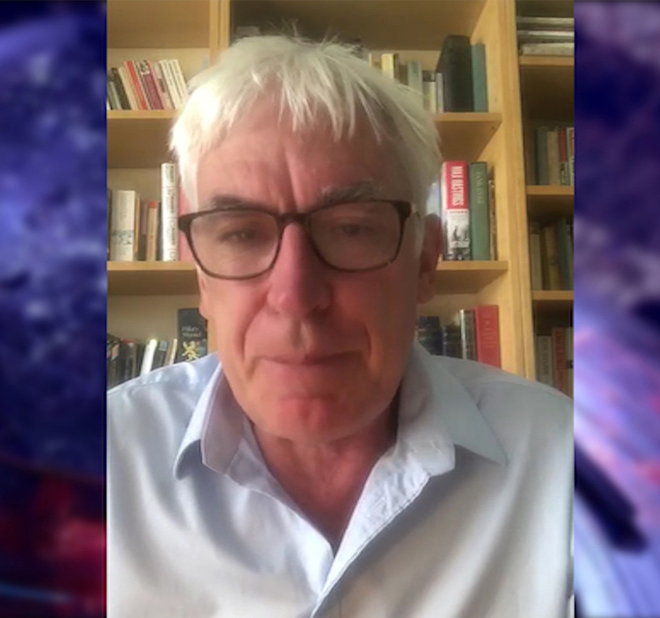
Owen Bennett Jones: As anyone who has read Ikram Sehgal’s columns over the years will know, he is a very prolific writer and not just that, he writes on a huge array of topics that all the stuff you would expect from a Pakistani columnist on what’s going on this week or this month but also broader topics, deeper topics, things such as mostly strategy, and economic strategy with his vantage point of being one the country’s leading businessman and also moral issues such as inequality. Very powerful articles in which Ikram Sehgal is effectively complaining about people he would move around with or meet in his business career and not be concerned more about what would anyone would have to say about the grudge levels of inequality in Pakistan. So there is a huge range of material, not only that, there is global perspective and perhaps it is one of the more useful things he can bring into his columns and therefore by extension to these books because as someone who goes to Davos to the World Economic Forum in Switzerland where the world’s leading business figures meet but also travelling widely in the US and Europe and UK gives him a global perspective which many commentators, journalists and so on lack. This is a really important perspective for Pakistan to have commentary from people who understand where the country is in the broader scheme of international affairs. There is a common theme to all this material, Ikram Sehgal is fiercely patriotic as all Pakistanis are, and that is reflected in the columns, he is also hopeful that the military can institute change in Pakistan to a greater degree to many of his liberal readers but underneath that there is an understanding of the limits of military power and desirability of civilian government if it can be done in a non-corrupt way. So there is a lot of material in these articles, in the collected works that he has put together and I recommend them to you.
Huma Baqai: And now ladies and gentlemen, we now have views from Singapore, Dr. Iftekhar Ahmed Choudhry who is a senior group advisor Meinhardt Group, Singapore.
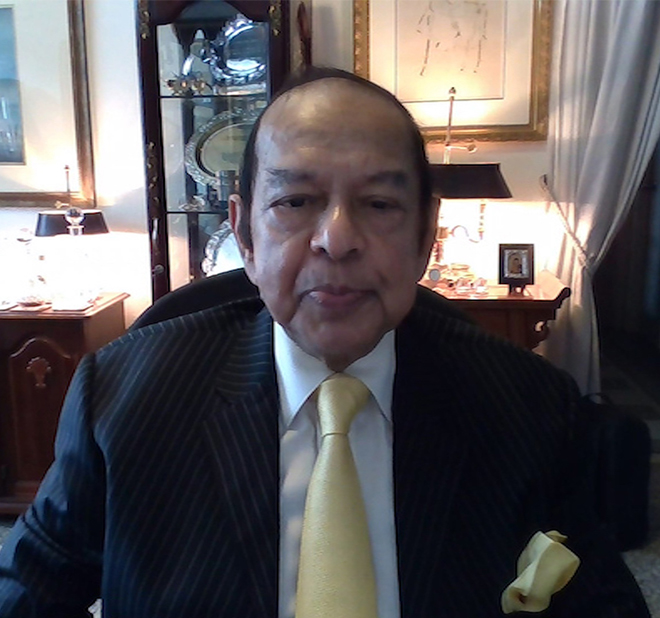
Dr. Iftekhar Ahmed Choudhry: It is a matter of enormous delight for me to be able to say a few words at this launch of Chairman Ikram Sehgal’s works. I have known Ikram, or Chand, the name by which he is known to all his friends in Bangladesh and Pakistan for a long time now and through this period he has never ceased to amaze me with the varied facets of his prodigious capabilities. Chand is really and truly a modern day Renaissance Man, scion of a military family he started off as an infantry soldier, an officer and gentleman, he walked into a man of letters able to meticulously pen his ideas reflected in the volumes that we see today. He did not just rest there. He employed his vast organising skills to build up this elaborate security empire, PATHFINDER, whose reputation has travelled beyond the borders of his own country. I have seen him contribute to global events such as the famous World Economic Forum, the gathering of global leaders at Davos, Switzerland. I had the privilege of hosting him later at an international seminar at the Institute of South Asian Studies at the National University of Singapore, reputed to be Asia’s foremost citadel of learning, there an incredibly discerning audience that Singapore can and does throw up, left deeply impressed. These volumes that have been launched today tell the tale of the travails and toils, of the successes and achievement of the people and the region and Chand’s own role in the milieu. An exposure to the volumes will demonstrate that Chand’s role was not at all insignificant. I will fervently hope and pray that Chand continues to add many more feathers to his cap and wish him success in all his future endeavours of which knowing him as I do, there will be many. Thank you.
Huma Baqai: That was the view from Singapore from Dr. Iftekhar who served as the former Foreign Minister of Bangladesh at a very difficult time. And now, the Army. We have Lt Gen Humayun Aziz former Commander 5 Corps to share his views,
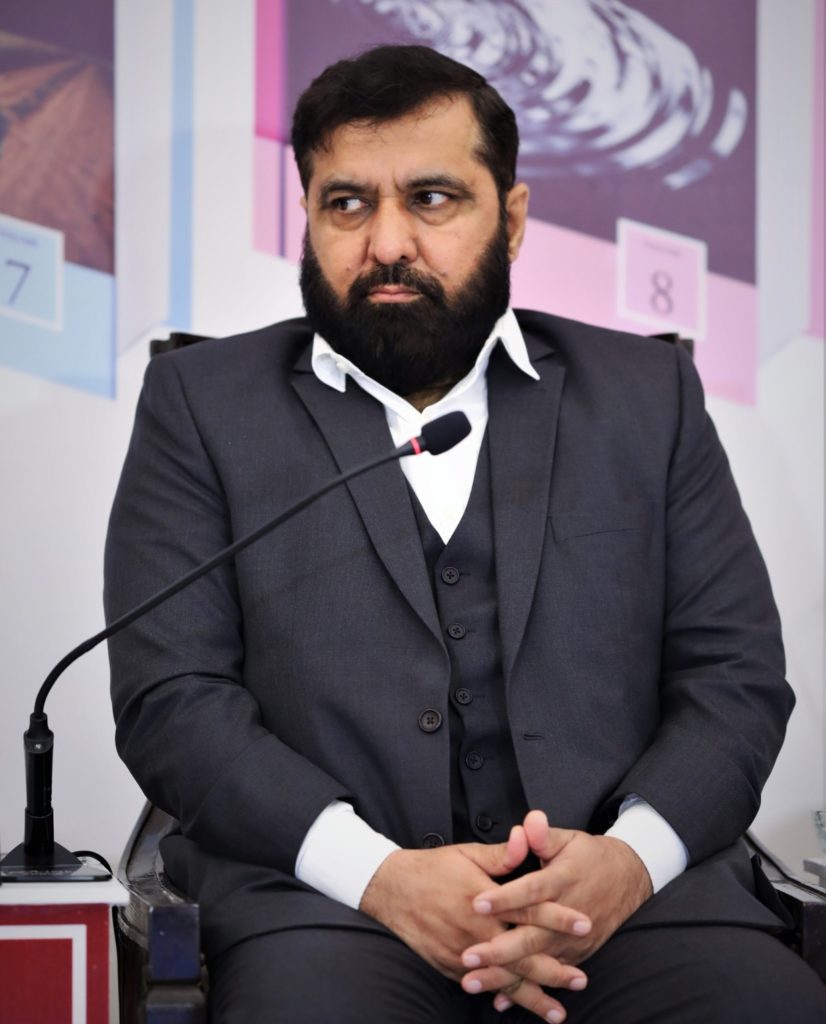
Lt Gen Humayun Aziz: My worthy friends here, Mr. Ikram Sehgal and the audience here, As Salaam Alaikum. It is indeed an honour for me to be standing here today and talking about the works of a person whose writings I have known for more than two decades and my personal association with him is about three years old. But as we both belong to the profession of soldiering and we have the honour of defending this motherland of ours, the bond becomes timeless. I feel I can empathize with his period of fighting which was in the 60s and 70s as much as he can empathize with my period of fighting and soldiering when he was wearing civilian dresses. The fact that Ikram Sahib over a period of time seen so much of diversity in life is reflected in the 12 volumes which are here today. Honourable Javed Jabbar has talked a lot about ‘Leave the Army Alone’ but to me this title signifies the first step of Ikram Sehgal’s journey of moving forward from where he left the Army. Many people when they face injustice, which Mr. Sehgal definitely did, and I know this to be fact as I have been privy to the records, get bitter, desperate and I have seen many of them go into depression, but not Ikram Sahib. He has the spirit of a surfer and when a wave comes to drown him he rides the wave and goes higher. And that is exactly what one gathers from his writings. The period of his writings covers some of the very, very dark days of our history, it also covers some of the very challenging and momentous moments but never will you find in his writings anything which is depressing, he ends his works with at least a way forward where we can get out of those challenges that are at that stage hurting our existence. During the last two years covered in Volume 12, I have been partner with him in some of his crimes and that gives me special pleasure. I know for a fact how when K-Electric’s decisions were being taken, Ikram Sahib’s decisions were on the side of the nation and not on the side of the corporate business. This coming a person who has built a successful business himself actually speaks that his intention has never been money and I keep telling my children, and my son is also here, that if you are working for a cause, if you are working for what you believe in, the money comes to you incidentally but that is not the main purpose. The same thing I feel when I have been reading Ikram Sehgal over more than two decades is reflected in his personality and in this book. Another important aspect of this collection which has already been highlighted, and which to me is very dear, whenever we talk to people outside Pakistan in academia they always talk about the lack of Pakistani resources and Pakistani perspective on the issues and challenges that face Pakistan so ultimately the researchers go to the narratives and perspectives which are not very amenable to our country and which don’t take into account our own limitations and our problems. The resultant new book adds to the volumes that already exist, I think this is such a beautiful collection of the past 40 years of events that any researcher who comes to these volumes, will find the raw truth that will show what is right and what is wrong. I think this is a very valuable collection that you have made by collecting all this into 12 volumes. I must also warn the people who are going to read these, there should be a warning on the box at least that it is addictive to read. I made the mistake of just reading the Preface and Introduction and started glancing through some of the articles of different periods and if you find me suffering from loss of sleep, or insomnia, the reason is the mistake that I made last night. So I would wish happy reading to those who can lay their hands on these, I think it is a very, very significant compilation of history. One more thing I should have mentioned earlier, generally I do not have a very high opinion of writers writing on the current events because mostly it is written without adequate background, it is like needless response to an event which is happening and most of the time, as time pass you tend to forget what was written and it becomes irrelevant. My last night’s reading as well as today’s have told me that Ikram Sahib’s perspectives have been proven most of the times. He has written with sincerity so what he has written is based on knowledge, conviction and experience because he has not just a man of words, he is a man of the world also, he has lived what he has said so that particular aspect will also come in handy to people who read this book. Thank you very much Sir for giving me this opportunity to say something which I wanted to say about you. Thank you.
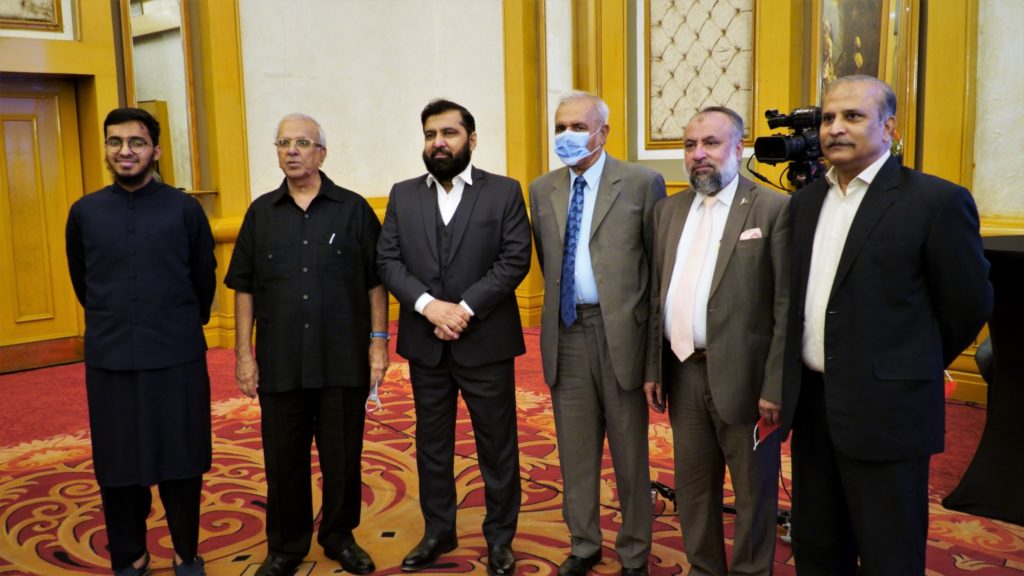
Huma Baqai: Thank you General Sahib. We now know that you and Javed Jabbar sahib were awake last night because of these volumes. I would actually insist that these be available to people, we should make that happen, perhaps a softer version because so much has been said it would be a pity if it is not accessible to the public. I said that Ikram Sehgal sahib is the face of Pakistan and that he is a goodwill Ambassador. If you want to see it in operation then it is in the World Economic Forum. if you were to step into the street in Davos, the entire street has India written over it, you have Tata stores and others pitching India and in this entire construct, in his private capacity, as a private citizen, he goes there with a delegation and makes sure that Pakistan has visibility. I think this is a feat few people know about but we should all be thankful to him, honour it and support him for it. Why I talked about this is because we have the President WEF and former Minister of Foreign Affairs, Norway, Mr. Borge Brende with us. His message:
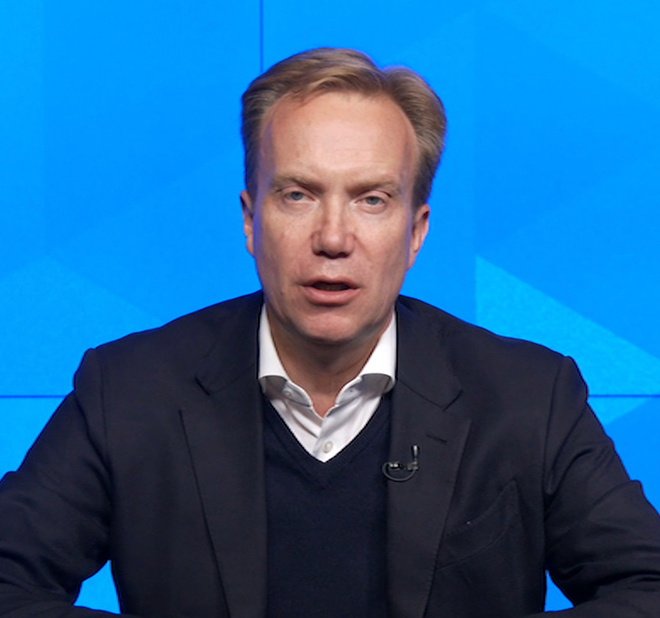
Mr. Borge Brende: Dear Ikram, the launch of A Personal Chronicle of Pakistan is a momentous day for you as a writer, it is also an opportunity for all of us to reflect the defining period of Pakistan’s history as seen from your privileged vantage point. I said ‘privileged’ not because you had an easy life, in fact judging by another one of your books, Escape from Oblivion”, even in the short span of your youth you appeared to have lived several very challenging lives. The important thing, however is not only did you survive each period of struggle thanks to your principled determination you were able to flourish in each distinct chapter of your life. No doubt you had to make difficult choices whether or not to risk your life in the daring escape from a prisoner war camp, whether or not to move out from the Army which was a central integral part of your identity, whether or not to leave a secure profession as a commercial pilot to set up your own business and whether or not to enter the fray of Pakistani public life with the publication of your first column. The silver thread linking your escape for the prisoner of war camp to the launch of these 12 volumes today is your commitment to doing something meaningful with the life we have all been given. This commitment of yours, naturally extended to your desire for your country of birth to develop in meaningful economic and diplomatic role for itself in the region and the world. Living up to your long-standing engagement with the WEF, for several years, recently also with your son, Zarrar have flown the flag of Pakistan at the Forum’s Annual Meeting in Davos, doing your part to make sure that the business community and environment is properly represented here alongside other nations. Beyond your writing is your desire to see Pakistan’s potential fulfilled both by courageously pointing out what does not work and by having the vision to identify the opportunities for its development Pakistan has many opportunities and these volumes are a gift to the next generation who will do well to follow your principled example in both business and public life. Dear Ikram, my sincere congratulations on the launch of these 12 volumes and also my congratulations and full respect to for what you have achieved both in business and in public life and even more importantly, for standing up for important values in your country and globally. Thank you.
Huma Baqai: Indeed a gift for the next generation. And now, ladies and gentlemen, please put your hands together for the man himself, Ikram Sehgal, the institution himself.
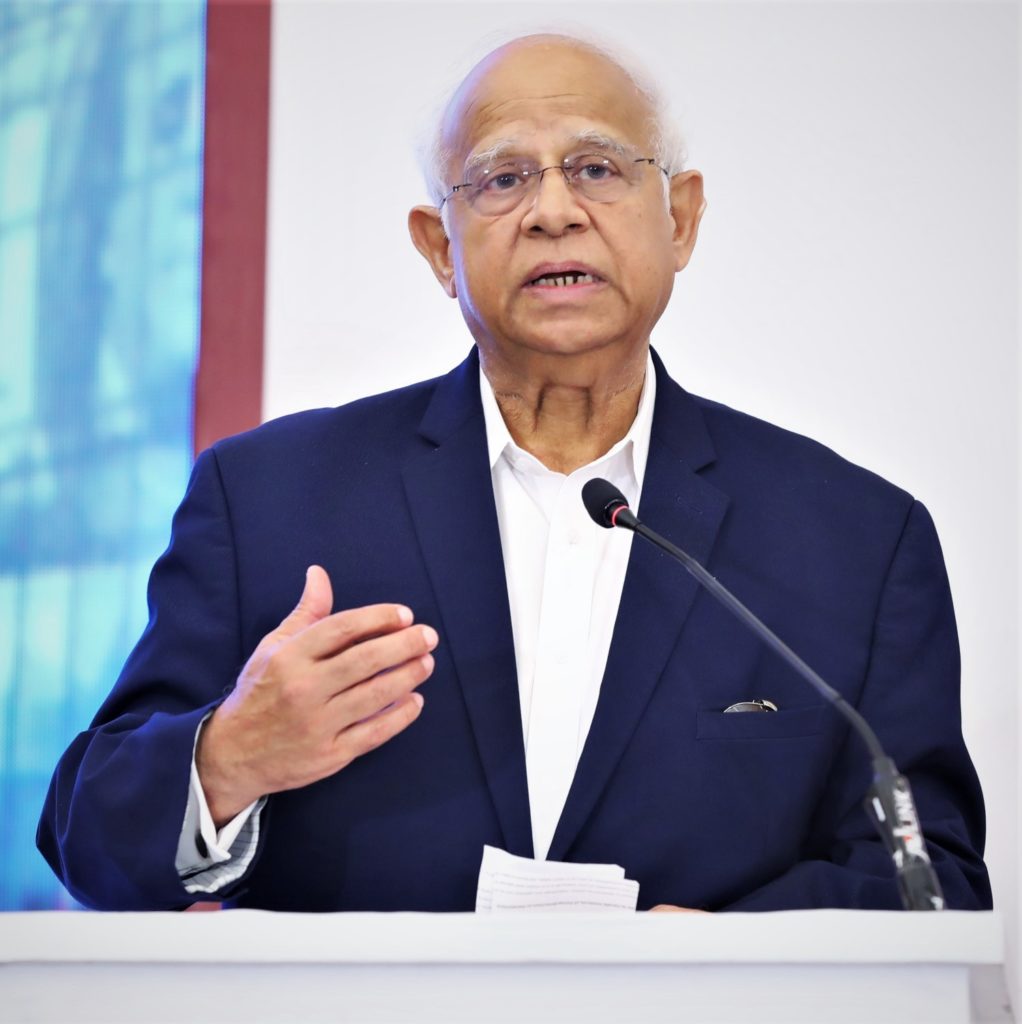
Ikram Sehgal: Bismillah Ar Rahman Ar Rahim. For of all I would like to thank all those who helped me make this possible. There are so many other things to writing particularly somebody who cannot type and writes in longhand and hopes that his secretary will decipher the hieroglyphics and put it down. First of all let me thank two people, Humera and Zeb (please stand up). Zeb has been with me for about 20 years and they have been looking at my articles, each and every article has been kept safe and because of that, they have come into these volumes. And I must thank Dr. Bettina Robotka because without her it was not possible to put this together, you know there was a lot of screaming and shouting at her as we went on but she managed to go through it and managed to put it back into some sense. Thank you Bettina. Some people are not here but I must tell you that it was impossible to even think about it as obviously not in the printing and publishing business. I was working with the Oxford University Press (OU) and went to them who said that it would take about four years if we have to go through these volumes and print them but said that they were prepared to help us out technically and that technical help involved looking at the books, getting them into some shape, editing it and of course selecting the right printer. So I would like to thank Mr. Arshad Hussain, who is not here today because his parents were coming at this time so he had to go away, I would like to thank Rahila Baqai and of course Ghousia Ali who was in charge of the editing and not the least Samuel Ray who got the brunt of it and was the one doing it on a daily basis, he was the one mandated by OUP and I am very grateful to you people for that. Beyond it I particularly put this volume there because I would like you to understand why I am so proud of Pakistan. I think Pakistanis can do anything, there are capable of it, give them the right leadership, they are capable of doing anything and I tell you OUP put me through to the printers and Topical Printers who printed this book, 1500 copies of each volume, in total 12 volumes they started printing actually on 29th of June, 2021 and said they would be ready by the 14th of July, 2021 and on 7th of July they said they would take two more days and would be ready by 4 O’clock on 16 of July. I would like to tell you that I got just lucky because this was a totally tremendous achievement, the gentlemen out of Kasur who started this process involved his cousin, both graduates of NCA and I requested Mr. Naseer Baloch, who is here and the way they put it together, was excellent and right at 4 pm on 15th July they delivered it to us. I must also tell you that I am grateful to those executives of mine, Capt. Pervaiz and Col Mazhar who were in Lahore and managed the logistics of it, they moved the books out, the printed copies with particular names on it, on 15 July afternoon at 4 pm, got caught in a traffic jam and actually able to leave Lahore at 7 pm. I personally spoke to the driver, Owais who was from my Company, asking him to please rest on the way and not to hurry. The convoy drove all night, they did not stop, I had to order them to stop at Moro. After estimated I told my staff to be ready by 6 pm on the afternoon but the convoy was here at 2 pm on the 16th. That is why I have my drivers and my guards sitting at the back here because I must recognize them, I must recognize that it is through their effort that the book reached within 14 hours, this is something we must be proud of. That is our Pakistan. While mentioning Naseer Baloch I forgot to mention Farhana, who was the executive dealing with his cousin and mind I would ring her up absolutely on the dot at 9.30 in the morning asking for a situation report and they would give it to me. So thank you again Naseer Sahib what a wonderful effort, really proud of it. I would also like to thank Afsar Hussain who had to go for a medical checkup and Tufail who put this event together. Tufail is here, so thank you Tufail.
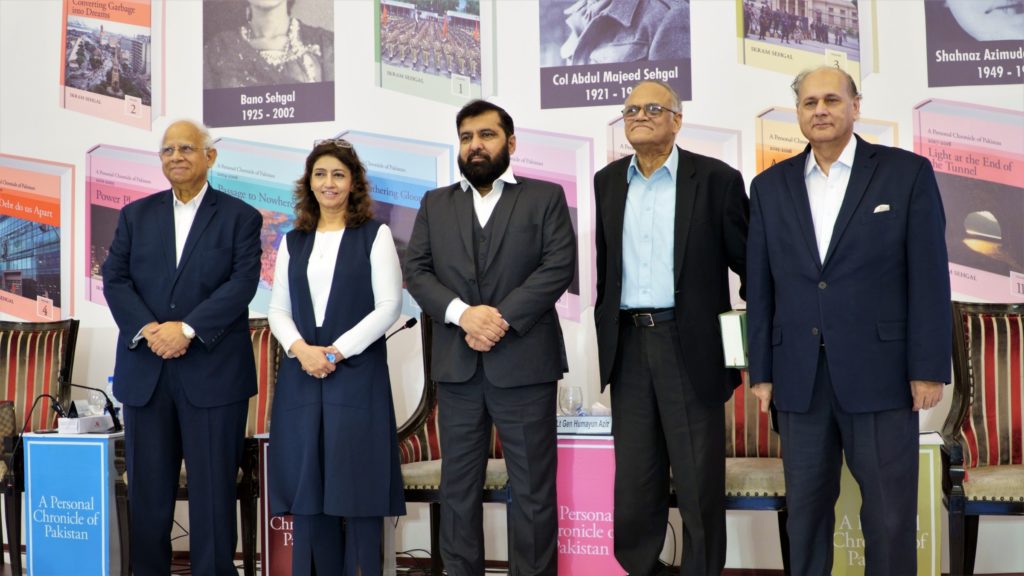
About speakers, I am always very careful about them. Some wanted to fly down from Islamabad but I told them that I will have an event in Islamabad later and you can be there. Here in Karachi I chose with great care because I know that each of them would be reading my articles but I did not know that all four of them, Huma, Javed Jabbar, Humayun and Sirajuddin Aziz would be going through my books last night, so grateful to you for that. Each of them is somebody in their own capacity, Huma of course in IBA and I say this openly, I am sorry to say that I might embarrass you Huma but her boss today who talked about CPEC when I was also there, he told the audience that CPED is a figment of the imagination. Today this man has been put as the IBA Chief and will students that CPED is a figment of imagination. I have been lucky that Huma is association with the Karachi Council of Foreign Relations, she is the Vice President there. Of course Sirajuddin Aziz sahib who already spoke. When I was appointed as a Director in the Bank I knew a little bit because I had started business, etc. etc. but I must tell you that when, as a soldier I came out. the first time I came across an LC, I thought Elsie was a girl not a letter of credit. I learnt on the way and when I got into the bank I kept quiet because the terms were not known to me, it took me three years to learn the terms and when I learnt the terms I gave a little bit of hard time to other directors which Siraj sahib knows about. He is right, I must commend him, let me tell you a run on a bank is where people take out their money from the bank. When people do this and remember a bank does not carry that much money so a time comes when the bank closes its doors, when it does that the bank collapses. People think that only one bank will collapse, in reality 7 or 8 banks would have collapsed, the economy of Pakistan would have been hit. Sirajuddin Aziz sahib, I am proud of the way you did it, I was just there as support, not once but twice and as usual somebody else got the credit. Anyway, Javed, I will tell you a secret. I went to Gen Musharraf and told him that ‘you slotted Javed wrongly”, he asked, ‘why?’ I said Rashid Qureshi will never leave his backside because he wants to run the Ministry. He said ‘where do we put Javed?’ I said that he is the perfect choice for Foreign Minister of Pakistan, he knows so much and can put it across in such a convincing manner, he is the ideal choice of Foreign Minister. I almost convinced him but of course I failed. And of course, Gen Humayun Aziz. What can one say? I get stunned by his depth of knowledge. Let me start by something he mentioned about K-Electric. I will say this openly that till that time I had no knowledge of what was going on. Actually the share holders of Karachi Electric are not the shareholders of Karachi Electric, it is a wrong perception, it is in the hands of liquidators. The Abraaj Group is under liquidation. It is a fraud run on the people of Pakistan that they are the shareholders, etc. and connivance is right up to the bureaucracy and right up to the Ministry, all of them are part of it. They wanted to sell it off. Yes do sell it off but it is a strategic asset and you do not sell off your strategic thing to foreigners. I welcomed the Chinese investment but not the complete majority, there were Pakistanis ready to buy, in fact one of them is sitting right here Haji. Hanif Pardesi who said we will put the money together but nobody was ready to listen to Pakistani businessmen put their money together and buy the shares of Abraaj if nothing else. This went on and on and they wanted to put up two power stations, Good God. Gen Aziz’s Chief of Staff was Brig Sami, now promoted to Maj, he worked it out and said, Sir, we have 4000 MW electricity spare in this area, why do we need power stations? So we fought it out but the powers that be can go around and project to people what they want helped along by vested interests. Luckily because of our intervention at least one of the power stations was dropped and US$900 million was saved while US$700 million went into the other power station which was not needed. You had so much electricity here coming out of your ears nut unfortunately it was not the way it should have been transmitted or distributed that was the only thing. If you had broken up Karachi Electric into 6 or maybe 12 parts you would have very good results. Karachi Electric has very good employees, it has a very good system, it is just a question of the owners who don’t want it to happen, they just want to sell out. And they want to sell out because there is no love for Pakistan.
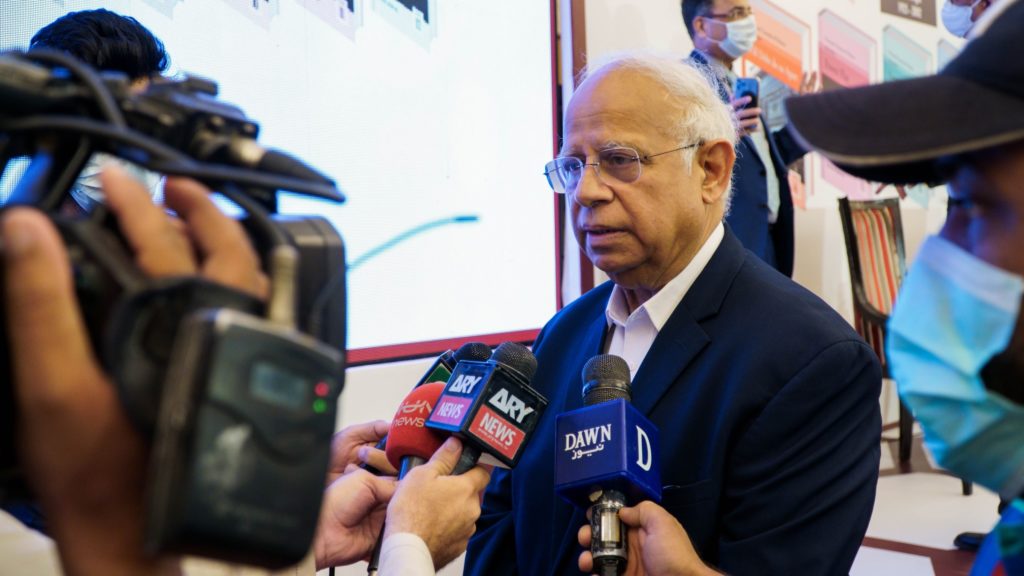
The last point that I want to talk about is about the three photographs you see here. My father was a Kattar Punjabi out of Sialkot, got wounded in Calcutta Mr. Suhrawardy got after him and said that he had to marry a Bengali because that was how Pakistan was made. So they did that without realizing what would we would have to go through, my sister and myself. When we came to West Pakistan we would become Bengalis and when we came to East Pakistan we would become Punjabis. You know my mother would not eat Roti but rice and patla daal and my father would not have that rice, but Pulao and not eat fish. Fortunately my sister and I had the best of both worlds, unfortunately my sister died very early on at the age of 28. But we were very lucky, the two of us. Out of the four I am the only one alive and they used to keep praying for me as I was the most reckless one and would probably get killed earlier. But here I am and God willing I will be 75 years old tomorrow.
I chose this day today for many reasons. My father would have been 100 years today and I wanted to honour his memory. Not many people know that Col Nusratullah, my instructor was with us afterwards in the Pathfinder Group, I took out his war diary and put it together in the magazine. My father, after the Kashmir war in 1947-48 had the first engagement with India in 1962 in Chittagong Hill Tracts in a place called Aslong Moza where he commanded a group which had two companies of 6FF and one battalion of East Pakistan Rifles (EPR). I have reproduced the war diary in Defence Journal. He was destined for greater things unfortunately he had a heart attack and at that point of time there was nothing in the Army and once you are down categorized you could not be promoted. So he left the Army rather than have to serve under somebody junior. But I would like to honour him today as he is 100 years old. There is another reason for 17 July and I want to address my grandson who is here, Suleman to tell him why 17 July is important to me. It is God’s Grace that I am standing here before you fifty years later. Fifty years ago I escaped from an Indian Prisoner of War Camp on 16th night, on 17th July I was bare feet in a lungi with no money on the road to Calcutta. This is destiny. God looks after you, if you believe in Him, He looks after you always. So 50 years later here I am on 17th addressing you people but I wish I could tell you what I felt 50 years ago, bare feet. God willing, I will be 75 years tomorrow on 18th July.
I am very grateful to the Army, the Army really made me what I am and my Group is a beneficiary of the Army. Today and I do not say that loudly, both Security and Management Services and Wackenhut have been acknowledged as the best private security services company in the developing world. We are the first one to get ISO18798. I keep quiet about it because it attracts a lot of jealousy. But why is that possible, it is possible because the hard core of the Pakistan Army, people who will do anything, they are with me and it makes a great difference when you given them the freedom, etc. we gave set trends that people cannot even think about. We have done things which we cannot even speak about because it is the realm of security because of the hardcore soldiers of the Pakistan Army who are members of the Group as well as the Pakistan Navy and Air Force. Then I turn to my family, your know one could not have hope for something better than Zarrar Sehgal, my son but he is more like a friend since childhood and he doesn’t call me ‘Daddy’ or ‘Father’ but calls me by my nickname ‘Chand’ and my grandchild also tried to do the same for some time until their mother stepped in. Zarrar has done very well Masha Allah and people do not know that he has been acclaimed by the New York Times as the best lawyer in the country in his field and that acclamation is by the newspaper but was done by all the lawyers who got together and chose him. I am very proud of him, he has been a good son and eventually, obviously, by proxy he runs the company.
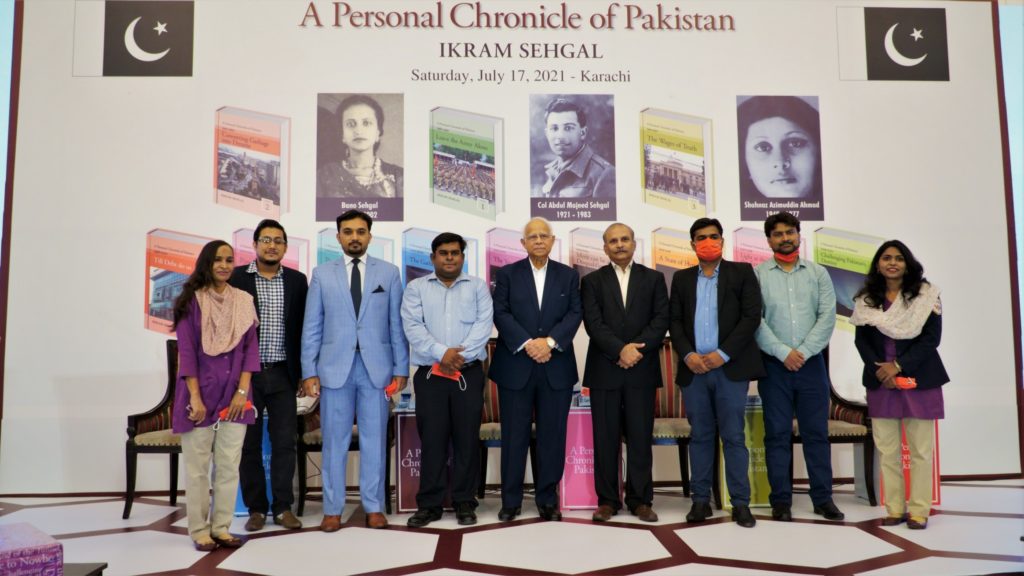
I got lucky, I don’t say he got lucky when he married my daughter, Kashmala, she is my daughter-in-law but I call her daughter. Kashmala is the driving force, keeps the family together, you cannot imagine what she does in a day just to keep everybody together. Just to give you an idea, got myself and my wife, Shahnaz off to New York just to get a Johnson injection 40 kilometers away. She does a lot. My two granddaughters are accomplished beyond measure, Amani the first born champion in her own right in swimming, very good rider, terrific in classes, you should see her grades. Elena is a star in her own right, a tennis star, in fact trains at the John McEnroe Academy, and mind you she does very well in her studies and even though my son and daughter in law want her to be a doctor but I don’t think so, she is going to be a lawyer or a politician. I will now talk about my daughters, one of them is not here, unfortunately she had to be on duty in Islamabad and of course Nefer who I am very proud of. Nefer can do anything she wants and she is very good at doing anything she wants. The only thing about Nefer is that she only wants to do it for two years, that makes it a hard to keep changing things. But whether its creating handbags, or moving into movie production, you cannot imagine. Let me tell you something about Nefer. The DG Rangers, Lt Gen Ejaz Chaudhry, a friend of mine who rang me up and said, Sir you have got to control your daughter. I asked what has she done. He said that there was a fire fight between my people and some terrorists and she was right in the middle taking photographs as she was working for the Tribune at that time. So they put her in a vehicle and sent her home. Haya who is not here does very good work as far as her artwork is concerned and is acclaimed as a very good writer as she writes regularly in newspapers, in fact far better I do and much more spontaneously. My long enduring wife, Shahnaz. I always know when she says ‘No’ to something it will work. I give her credit for her patience because by nature I am creative and I like to do new things.
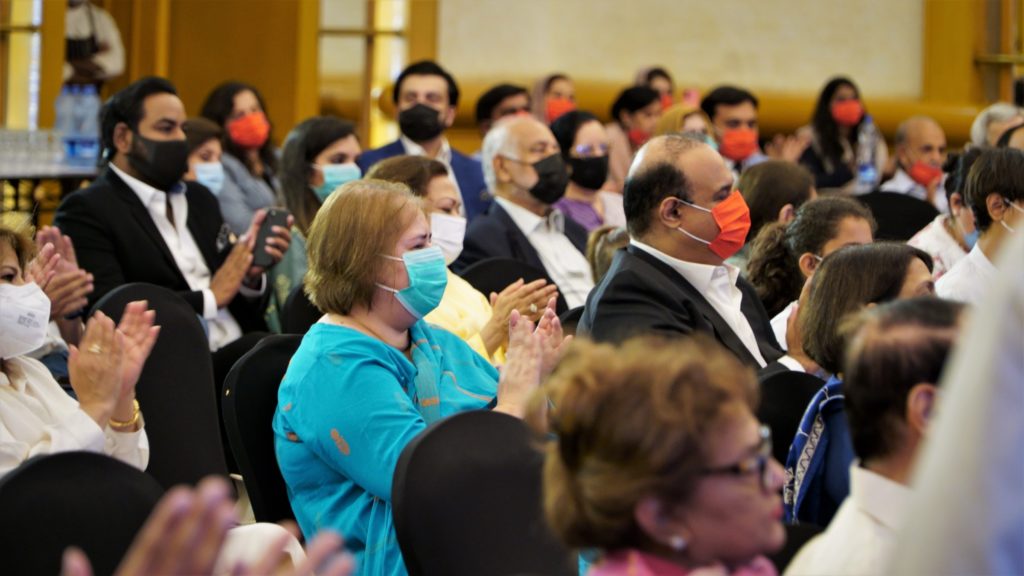
In the end I would like to talk about Pakistan. This is the most blessed country on this earth, just imagine you are at a place where the Chinese need you for access to the Indian Ocean. The Russians also need you for the same reason. The Iranians need you because of their sanctions. The entire region needs you. The only problem you have, which is diminishing every day, because India has a platform in Afghanistan but they do not have it anymore. They used this platform against Pakistan using Russian lives and Russian money, Afghan lives during the war and then switched on to American lives and American money, they fought the cheapest war, a proxy war in history against us. They got away with but now this is not the case anymore. India should leave us alone because we have a tremendous potential. We are the gateway, we are part of Asia, we are part of Central Asia and we are part of the Middle East, so you can imagine that everything can go through us. I think this is a tremendous country, it just has to have the right leadership and it has to get away from vested interest. Accountability must happen, you cannot get away without accountability. You have to hold people accountable, you cannot allow anyone to get away with fake accounts, money laundering, etc. Thank God that it is a crime abroad, people may not know that if you get convicted of money laundering and fake accounts in your country, in the host country where the money has gone all your bank accounts and your property will be confiscated. I think it will take only one day with the forensics that you have and the banks accounts you have uncovered i.e. 50 crores in the account of a driver, 60 crores in a rehrawala’s account, you can convict these people in one day. I have great respect for the judiciary but they must wake up and realize that a lot depends upon them for holding people accountable and convicting them and above all, convicting them of perjury, people go to the courts and tell lies under oath and nothing happens. You know why doesn’t anybody talk about the Calibri font in England? I request any PMLN leaders to go and say in England that the Calibri font was not correct. You will find a suit against you there because that is a defamation case. Unfortunately they have very good lawyers but I think it is time the judiciary must come into its own and if Pakistan is to get ahead the judiciary must work.
Thank you all for coming, for listening to me. I am very grateful to all of you who have assembled here, grateful to the panel of speakers, grateful to the people who have worked hard setting this up. I repeat that it is a matter of honour, it is a matter of pride being a Pakistani and there is no better thing in life. When Shahnaz was keen to get a green card, I said ‘No, I am not getting a green card’, my son asked me, ‘Why not?” I said, this is where my people are, people who have served with me, died here, their graves are here and I would like to die here as a Pakistani. Thank you.


